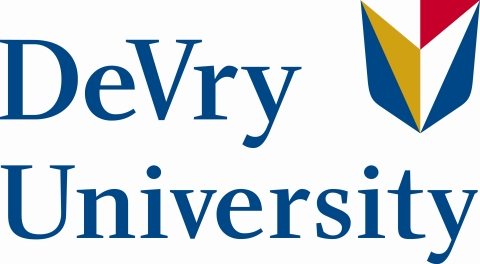DOWNERS GROVE, Ill.--(BUSINESS WIRE)--With holiday shopping upon us, it’s important to take precautions when making online purchases. The number of cybercrime incidents in the United States could grow as Americans move into an increasingly digital society. This year, online shopping is expected to become the No. 1 destination for holiday gift buying according to recent research1. And with malware infections that are designed to capture personal and financial data, consumers are more vulnerable to cyberattacks. In 2015, there was an 84 percent spike in malware infections during the holiday shopping season, especially two weeks following Cyber Monday2.
Keeping your vital information safe on your electronic devices means increasing your focus on your own cybersecurity. “It’s important to protect yourself by taking personal responsibility for your data; we can’t expect banks or other institutions to do it for us,” said Jim Karagiannes, Ph.D., professor in DeVry University’s College of Engineering & Information Sciences. “We lock our doors and take other security measures to protect our home and car. We need to also take precautions with our personal security and information."
Start with these five tips to protect your personal data this holiday season:
* Recognize you're not immune. Cyberattacks increase in frequency and severity every year, so don’t make the mistake of believing it can’t happen to you. Prepare to take responsibility for your personal and financial data.
* Use only a credit card, not a debit card, when making online purchases. Using your credit card instead of your debit card allows you to keep better track of the purchases you have made. It also limits the effects of any possible theft to just the one card instead of several. If you have no choice but to use a debit card for an online purchase, do not use your security pin number online.
* Don’t store your username, password or credit card information with a retail website. The convenience makes it tempting, but store websites are a popular target for cybercriminals because a successful hack gives them access to thousands of files, including yours. Even storing this information on your own computer can expose it in a cyberattack. If your credit card information is compromised, cybercriminals can have the ability to access your social security number, as well, and expose you to greater identify theft. Keep this information off your devices and, instead, create complex passwords and write down all of your usernames and passwords on a piece of paper that you keep in a safe place, such as a deposit box.
* If it feels like a trick, it probably is. Cybercriminals often engage in “social engineering” or other non-electronic methods to try and trick you into surrendering your data. If you get a phone call about a banking or credit card issue or if your computer tells you to call a number because it just caught a virus, be cautious. Do not divulge any personal history or credit card details. Hang up or ignore the computer-generated notices and call the customer service number of the institution’s website with any questions.
* Replace your existing credit cards with chip cards as soon as possible. If your current credit card does not have a silver square chip on its front, consider replacing it quickly. Popularized in Europe, chip cards possess the necessary encrypted information to eliminate delays in the transaction process. Doing so closes the window criminals need to steal your personal information, thus protecting you from identity theft.
Following the tips above will help better secure your personal information from the threats of cybercrime this holiday season so you can enjoy greater peace of mind.
About DeVry University
DeVry University’s mission is to foster student learning through high-quality, career-oriented education integrating technology, business, science and the arts. Founded in 1931, the university offers undergraduate and graduate programs onsite and online within its five distinguished colleges of study: Business & Management, Engineering & Information Sciences, Health Sciences, Liberal Arts & Sciences, and Media Arts & Technology. The university is accredited by The Higher Learning Commission (HLC, www.hlcommission.org).
With locations across the U.S., DeVry University is one of the largest private-sector universities in North America. The university is a part of DeVry Education Group (NYSE: DV), a global provider of educational services. To learn more about DeVry University, visit devry.edu.
2 http://www.enigmasoftware.com/malware-expected-spike-during-2016-holiday-shopping-season/




